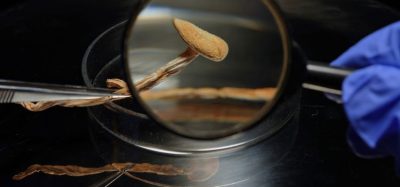Further clinical trials testing Kevzara as COVID-19 therapy to be halted
Posted: 2 September 2020 | Victoria Rees (European Pharmaceutical Review) | No comments yet
After Kevzara (sarilumab) did not meet its primary or secondary endpoints in a Phase III trial, Sanofi and Regeneron have said they do not expect to conduct further studies on the drug against COVID-19.


Sanofi and Regeneron have announced that the global Phase III clinical trial investigating Kevzara (sarilumab) in severely or critically ill patients hospitalised with COVID-19 did not meet its primary endpoint and key secondary endpoint when the drug was compared to placebo added to usual hospital care. The companies say that they do not anticipate conducting further clinical studies for Kevzara in COVID-19.
Kevzara was intravenously administered at a dose of 200mg or 400mg to the patients. The drug binds specifically to the IL-6 receptor and has been shown to inhibit IL-6 mediated signalling.
The 420-patient randomised trial was conducted in Argentina, Brazil, Canada, Chile, France, Germany, Israel, Italy, Japan, Russia and Spain.
“Although this trial did not yield the results we hoped for, we are proud of the work that was achieved by the team to further our understanding of the potential use of Kevzara for the treatment of COVID-19,” said Dr John Reed, Global Head of Research and Development at Sanofi. “In times like these, commitment to properly designed, controlled clinical trials, provides the information and understanding the scientific community needs for fact-based decision making. At Sanofi, we are committed to help combat the global COVID-19 pandemic, including developing vaccine candidates that can be manufactured at large-scale.”
Although not statistically significant, the companies say that numerical trends were observed toward a decrease in duration of hospital stay as well as an acceleration in time to improve clinical outcomes. Furthermore, a trend was observed towards reduced mortality in the critical patient group which was not seen in the severe patient group. Finally, the time to discharge was shortened by two to three days (statistically non-significant) in the patients treated with Kevzara within the first two weeks of treatment.
Serious adverse events were experienced by 26-29 percent of Kevzara patients and 24 percent of placebo patients. The incidence of adverse events leading to death was approximately 10 percent in all treatment arms.
Kevzara is currently approved in multiple countries to treat adults with moderately to severely active rheumatoid arthritis who have not responded to or tolerated previous therapy.
Related topics
Clinical Development, Clinical Trials, Drug Safety, QA/QC, Research & Development (R&D)









